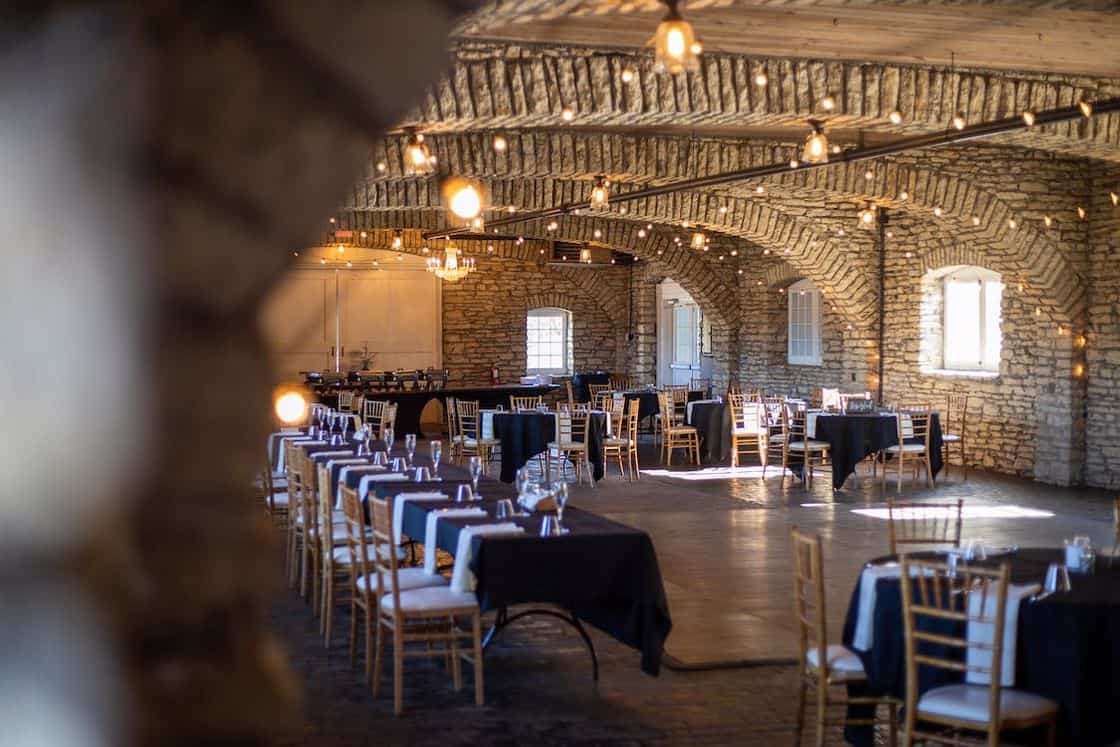How Event Production Works: A Comprehensive Look at the Refine
Event production is a facility and organized process that needs cautious planning and implementation. It begins with developing clear purposes and comprehending the target audience. Each step, from budgeting to place option, plays a critical duty in making sure success. As the process unfolds, numerous aspects should align flawlessly. The nuances of this detailed operation often go undetected. What are the essential phases that add to an unforgettable event?

The First Drawing Board
When beginning on event production, cautious planning is necessary to ensure a successful outcome. The initial drawing board offers as the foundation for all subsequent initiatives. Throughout this phase, event producers have to define the event's function and purposes clearly. Determining the target audience aids customize the experience and messaging, guaranteeing importance and engagement.Producers have to additionally think about the event format, whether it be in-person, virtual, or crossbreed, as this will influence various logistical components. Choosing a suitable day and location is vital, as it affects access and availability.Furthermore, setting up a reliable team is essential for separating responsibilities and improving interaction. Establishing a timeline with landmarks assurances all jobs are completed on schedule. This phase includes comprehensive study, including recognizing potential obstacles and devising methods to reduce threats. Ultimately, a well-structured preliminary preparation phase establishes the tone for an effective event production journey.

Budgeting and Resource Allowance
In event production, reliable budgeting and source allowance are crucial for success - event production charlotte. Establishing monetary parameters sets the foundation for all succeeding choices, while source circulation strategies guarantee that every element of the event is appropriately supported. Together, these aspects assist keep control over expenses and optimize making use of offered resources
Establishing Financial Parameters
Establishing monetary specifications is crucial to the success of any type of event production, as it establishes the structure for reliable budgeting and source allotment. This process begins with defining the total budget, which encompasses all aspects of the event, including venue prices, catering, and marketing. By determining available funds, event organizers can focus on expenses and assign resources accordingly. Additionally, it is important to perform detailed marketing research to expect prospective costs and recognize funding sources, such as sponsorships or ticket sales. Developing clear economic specifications also help in danger administration, allowing organizers to allot backup funds for unforeseen expenses. Inevitably, a distinct budget offers as a roadmap, assisting the event production team in the direction of accomplishing their objectives while preserving financial control.
Source Distribution Approaches
Efficient source distribution strategies are crucial for making best use of the influence of an event while sticking to budget plan restraints. Successful event production needs a meticulous method to budgeting and resource allowance. Planners need to focus on vital aspects such as place, event catering, and modern technology, guaranteeing that funds are alloted to areas that improve participant experience. A comprehensive spending plan should detail anticipated expenditures and identify areas for prospective cost financial savings, such as working out with vendors or discovering sponsorship opportunities. Furthermore, tracking expenses throughout the preparation process assists protect against overspending. By employing tactical resource distribution, event producers can provide a remarkable experience while maintaining fiscal obligation, eventually adding to the general success of the event.
Location Choice and Logistics
Picking the appropriate place is vital to the success of any event, as it sets the stage for the overall experience. Place option involves assessing various factors, including ability, access, and area. Organizers should consider the target audience and the nature of the event, ensuring the place lines up with the event's goals.Logistics play a considerable role in this procedure, entailing setups for seats, audiovisual equipment, and providing solutions. A well-chosen place must assist in smooth flow for attendees and team, improving engagement.Additionally, reviewing possible locations for amenities like parking, restrooms, and fire escape is necessary for safety and security and comfort. The timeline for securing the place is likewise critical, as prominent locations might book promptly - event production charlotte. Comprehensive planning and prompt execution can eventually contribute to a smooth event experience, making venue choice and logistics essential components of successful event production.
Creative Idea Growth
While the location sets the physical phase, creative concept advancement forms the event's identity and narrative. This process starts with identifying the event's objective and target audience, enabling event manufacturers to create a compelling theme that resonates with participants. Conceptualizing sessions typically consist of varied viewpoints, cultivating cutting-edge concepts that line up with the event's goals.Once a style is developed, aesthetic components such as shade palettes, signage, and design are created to boost the total ambience. Narration strategies might also be integrated to create an appealing trip for individuals, assuring a remarkable experience. In addition, factors to consider pertaining to entertainment, activities, and interactive elements are lined up with the chosen concept, reinforcing the theme throughout the event.Ultimately, reliable imaginative principle advancement assurances that every element of the event works cohesively, leaving a lasting impact on participants and satisfying the event's goals. This foundational job prepares for succeeding planning and execution phases.
Working together With Vendors and Suppliers
Effective event production depends upon efficient collaboration with suppliers and vendors. Choosing dependable partners, bargaining contracts efficiently, and ensuring prompt shipments are crucial actions in this process. Each of these factors adds considerably to the general success and smooth implementation of an event.
Selecting Reliable Allies
How can event organizers guarantee a smooth production experience? Choosing dependable companions is important in attaining this goal. Event organizers should perform extensive research to determine suppliers and providers with a tried and tested track record of quality. This consists of inspecting referrals, examining profiles, and evaluating client responses. Planners must focus on companions who show professionalism and trust, prompt communication, and a determination to work together. Building solid relationships fosters count on and makes it possible for quick analytic during the event. Furthermore, it is beneficial to select regional vendors who comprehend the location and local logistics. Ultimately, a successful event rests on the synergy between coordinators and their companions, ensuring that every element of production runs efficiently and efficiently.
Discussing Contracts Effectively
Reliable negotiation of agreements is a vital action in the partnership in between event coordinators and their vendors and vendors. This process includes clear communication of expectations, deliverables, and timelines. Coordinators need to perform thorough research on market prices and sector requirements to establish a baseline for negotiations. It is essential to create a collaborative ambience, urging open dialogue about terms, rates, and possible contingencies. Planners ought to likewise prioritize recognizing the vendor's capabilities and constraints to straighten their demands effectively. Adaptability can cause mutually beneficial arrangements, promoting long-term partnerships. Crafting distinct agreements that include specific efficiency metrics can help assure responsibility, ultimately bring click now about successful event execution and satisfaction for all celebrations involved.
Making Certain Timely Distributions
Timely distributions are crucial for the smooth execution of any kind of event, requiring thorough collaboration between organizers and their vendors and providers. Reliable interaction is crucial, as it assists develop clear expectations regarding distribution schedules, quantities, and details requirements. Coordinators usually create in-depth timelines to lay out crucial landmarks, ensuring all parties remain lined up throughout the process. Normal check-ins with vendors can assist recognize potential delays early, enabling proactive services. Furthermore, developing solid partnerships with reputable vendors cultivates trust fund and liability, which can cause far better solution and prioritization. By prioritizing these collaborative efforts, planners can minimize disruptions, thereby enhancing the overall effectiveness of event production and making sure that all needed materials and services arrive as prepared.
Advertising And Marketing and Promotion Techniques
While organizing an occasion, the success of advertising and promo strategies can significantly affect presence and interaction. Effective approaches commonly include a combination of electronic advertising, conventional advertising and marketing, and grassroots outreach. Making use of social media sites systems permits for real-time communication and targeted advertising, getting to particular demographics effectively. Email advertising projects can additionally involve prospective guests with personalized material and reminders.Collaborations with influencers or sector leaders can likewise boost trustworthiness and expand reach. Creating appealing web content, such as video clips or blog sites, helps to produce buzz and receive rate of interest leading up to the event. In addition, leveraging early-bird discounts and exclusive advantages can incentivize ticket purchases.Promoting via typical channels, such as posters or regional media, continues to be relevant, especially in community-focused events. A detailed technique that incorporates numerous techniques assurances optimum presence and engagement, ultimately adding to the event's success and the production of an unforgettable experience for guests.
On-Site Implementation and Monitoring
On-site implementation and monitoring are important components that identify the overall success of an event. Efficient sychronisation during the event ensures that all aspects line up with the prepared agenda. Event managers manage logistics, consisting of vendor sychronisation, equipment setup, and guest solutions. Keeping track of timelines and addressing any type of unforeseen issues are fundamental for keeping a smooth experience.The personnel plays a considerable role, as trained employees are accountable for numerous jobs such as registration, information circulation, and technical support. Communication amongst employee is crucial; it cultivates a collaborative atmosphere and enables fast resolution of challenges.Additionally, safety methods need to be stuck to, guarding the wellness of all attendees. Post-event assessments are additionally part of on-site administration, supplying understandings for future renovations. By concentrating on these aspects, event producers can create unforgettable experiences that meet or go beyond attendee assumptions while achieving the event's purposes.
Frequently Asked Inquiries
Exactly how Do I Select the Right Event Motif?
Choosing the appropriate event theme includes considering the target market, event objective, and venue. Researching present fads and collecting input from stakeholders can visit site additionally motivate imaginative ideas that reverberate and create an unforgettable experience.

What Prevail Errors in Event Production?
Common blunders in event production commonly include poor preparation, bad interaction among staff member, budget mismanagement, disregarding to take into account the target market's requirements, and stopping working to perform a thorough post-event examination for future improvements.
Just How Can I Measure Event Success?
To determine event success, one can analyze guest complete satisfaction, interaction levels, budget plan adherence, and post-event responses. Secret efficiency indicators, such as ticket sales and social networks communications, also supply beneficial understandings right into general efficiency.
What Should I Do if It Drizzles on the Event Day?
In the event of moisten the day, the organizer why not look here ought to apply contingency plans, such as securing camping tents or moving activities indoors. Interaction with attendees concerning modifications is necessary to assure a smooth experience regardless of weather obstacles.
How Can I Guarantee Guest Involvement Throughout the Event?
